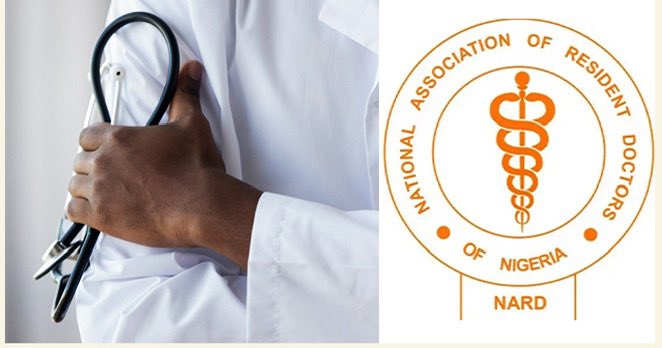
*Experts urge local councils, states to complement FG on funding of PHC services to ensure UHC
Experts are unanimous that a functional primary health care (PHC) system is critical to containing the spread of the Coronavirus disease (COVID-19) in Nigeria, as has been demonstrated in some other parts of the world.
They said PHC is the bedrock of the Nigerian health system and the first level of contact with the population – 80 per cent of health-related visits are for PHC conditions. They also make up 86 per cent of total healthcare centres.
President, Nigerian Medical Association (NMA) and former Director General of the Nigerian Institute for Medical Research (NIMR) Yaba, Lagos, Prof. Innocent Ujah, said according to the Nigerian Constitution (1999), the provision of health care at PHC level is largely the responsibility of local governments with the support of state ministries of health and within the overall national health policy.
Ujah, a consultant Obstetric and Gynaecologist and Vice-Chancellor of Federal University of Health Sciences, Otukpo, Benue, said unfortunately, this novel initiative conceptualised during the Alma Ata Declaration in 1978, is not functioning properly in Nigeria.
Several studies have shown that PHC, which is supposed to be the bedrock of the country’s health care policy and key to achieving Universal Health Coverage (UHC), is currently catering for less than 20 per cent of the potential patients. The Guardian investigation revealed that while most PHC facilities are in various state of disrepair, with equipment and infrastructure being either absent or obsolete, the referral system is almost non-existent.
Past administrations had built structures without proper equipment and medical personnel to man them.
The Guardian found that some of the buildings are now housing animals and hoodlums. Patients with conditions that could be conveniently handled at PHCs now visit secondary and tertiary hospitals, while others resort to quacks.
However, there have been attempts by the Federal Government to revitalise PHC centres in the country. As part of efforts to correct the anomaly, reverse the poor health indices in the country and ensure UHC, President Muhammadu Buhari had in 2018 flagged off the revitalisation of 10,000 PHC centres nationwide with the inauguration of Kuchigoro clinic, Abuja, as a model.
Meanwhile, several studies have shown that the local governments are responsible for primary health care delivery. They are to budget, implement, manage, monitor and evaluate primary health care within the local area. Local government is to discharge this service at affordable price using appropriate methods and technologies.
However, amid these lofty goals, the practice of primary health care is constrained because the local government authorities and State governments abandon their responsibilities of funding PHC centres to the Federal Government.
In Nigeria, the Federal Government through the National Primary Health Care Development Agency (NPHCDA) basically funds PHC services.
But critics insist that for PHC centres to become more functional and be able to perform their mandates of containing epidemics and pandemics such as COVID-19, local government authorities and State governments have to be more responsible in funding them.
According to the World Health Organisation’s (WHO) document, “Role of primary care in the COVID-19 response”, primary health care is an essential foundation for the global response to coronavirus disease 2019 (COVID-19).
The WHO said primary care plays a significant role in gatekeeping and clinical responses: differentiating patients with respiratory symptoms from those with COVID-19, making an early diagnosis, helping vulnerable people cope with their anxiety about the virus, and reducing the demand for hospital services.
The document provides interim guidance on: timely, effective and safe supportive management of patients with suspected and confirmed COVID
-19 at the primary care level; and delivery of essential health services at the primary care level during the COVID-19 outbreak.
Most people with COVID-19 develop mild or uncomplicated illness that can be managed at the primary care level. As the number of COVID-19 cases increases, the demand for primary care services will escalate. Health ministries will need to take appropriate action to support management of COVID-19 cases at the primary care level, identify strategies to increase surge capacity, manage and maintain stocks of personal protective equipment (PPE) and other essential medicines and supplies, and ensure timely adaptation to address the needs of vulnerable groups.
In addition, essential health services will need to be maintained to reduce preventable deaths.
The WHO has issued a wide range of technical guidance on the COVID-19 response, covering case investigation, case management, infection prevention and control, national laboratories, early investigation protocols, and risk communication and community engagement.
Many of these documents already include important guidance on primary care approaches.
Indeed, there is overwhelming evidence demonstrating the significant influence of PHC in reducing mortality and health inequities, and this tends to be further potentialised when combined with income transfer and social protection policies.
As such, PHC has to be considered an important mainstay in the face of emergency situations, such as the Lassa fever, cholera, measles and cerebro spinal meningitis (CSM) epidemics and now the COVID-19 epidemic as well.
According to a study titled “What is the role of Primary Health Care in the COVID-19 pandemic?” and published in the journal Epidemiologia e Serviços de Saúde, emphasising that which is the very soul of primary care, such as knowledge of the catchment area, access, the link between the service user and the health team, comprehensive care, monitoring vulnerable families and following up on suspected and mild cases, is a fundamental strategy both for containing the epidemic and for people with COVID-19 not becoming severely ill.
Meanwhile, the NPHCDA had, since May 2020, started training health workers at the primary health level across the country. The training is as a result of the increasing number of COVID-19 cases in Nigeria.
Speaking to the participants at the virtual training, Minister of Health, Dr. Osagie Ehanire, noted that the capability of PHC workers to engage the grassroots was essential to curbing polio, Ebola and other diseases and would be needed to support the next phase of COVID-19. He said that the government was aware that PHC workers require additional skills and knowledge to adequately and effectively respond to COVID-19 outbreak.
Executive Director of the NPHCDA, Dr. Faisal Shuaib, said over two hundred PHC workers have been trained. Guidelines have been developed and sent to states to streamline COVID-19 efforts. He said that the NPHCDA is using the opportunity of the COVID-19 to pass correct information to the people.
He noted that the virtual training, which is the first of its kind, would enable PHC workers to be more proactive in the COVID-19 effort. The over two hundred Primary Healthcare workers were drawn from all over Nigeria.
Meanwhile, according to the Brazilian study published in the journal Epidemiologia e Serviços de Saúde, responsibility will also fall on PHC in addressing problems arising from prolonged social distancing and the undermining of social and economic life, such as mental disorders, domestic violence, alcoholism and worsening or development of chronic conditions, the consequences of which are hard to foresee and require continuous comprehensive care. All of this comes on top of the set of problems people already live with and which emerge in everyday health service activities.
The researchers said in order to ensure safe and quality service delivery at this level of health care, the following are therefore necessary: data-based planning, service reorganisation according to the characteristics of the epidemic, allocation of financial resources and specific action strategies to address the pandemic that is underway. These include: health workers trained to meet people’s demands with quality, whereby some actions already exist in this direction; large quantities of diagnostic tests, if mass testing is opted for; structure for requesting complementary tests with timely results; adequate physical facilities to accommodate possible suspected cases arriving at health services; medication stocks; well-defined workflows and protocols – like those already developed and constantly updated by the Ministry of Health, with priority access to other health service levels, so as to potentialise PHC health care coordination; support for diagnostic support and care shared with health teams; sufficient health workers, including Community Health Agents, to carry out surveillance in community and household settings; adequate personal protective equipment in sufficient quantities for health workers and symptomatic individuals; and organisation of work processes that efficiently interlink methods relating to service access, care for people and production of information capable of providing feedback to the service and the system in a timely manner, thus strengthening care delivered to the population.
The researchers said PHC is powerful in reducing health inequities and must, therefore, be strengthened and structured as one of the main health sector responses to the epidemic, given that it is highly spread across the national territory and reaches sizeable groups of the population exposed to excessive risks due to their living conditions.





